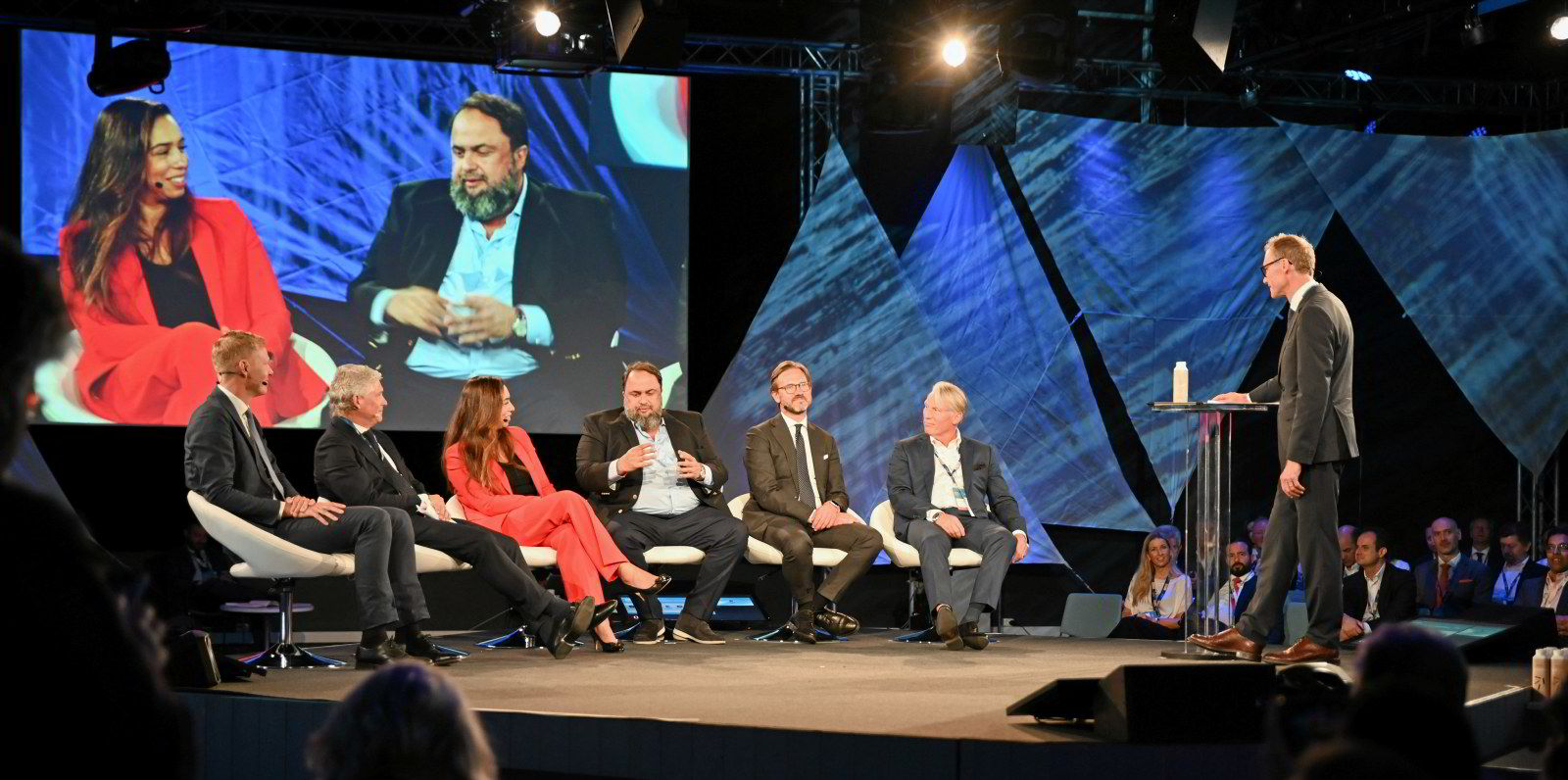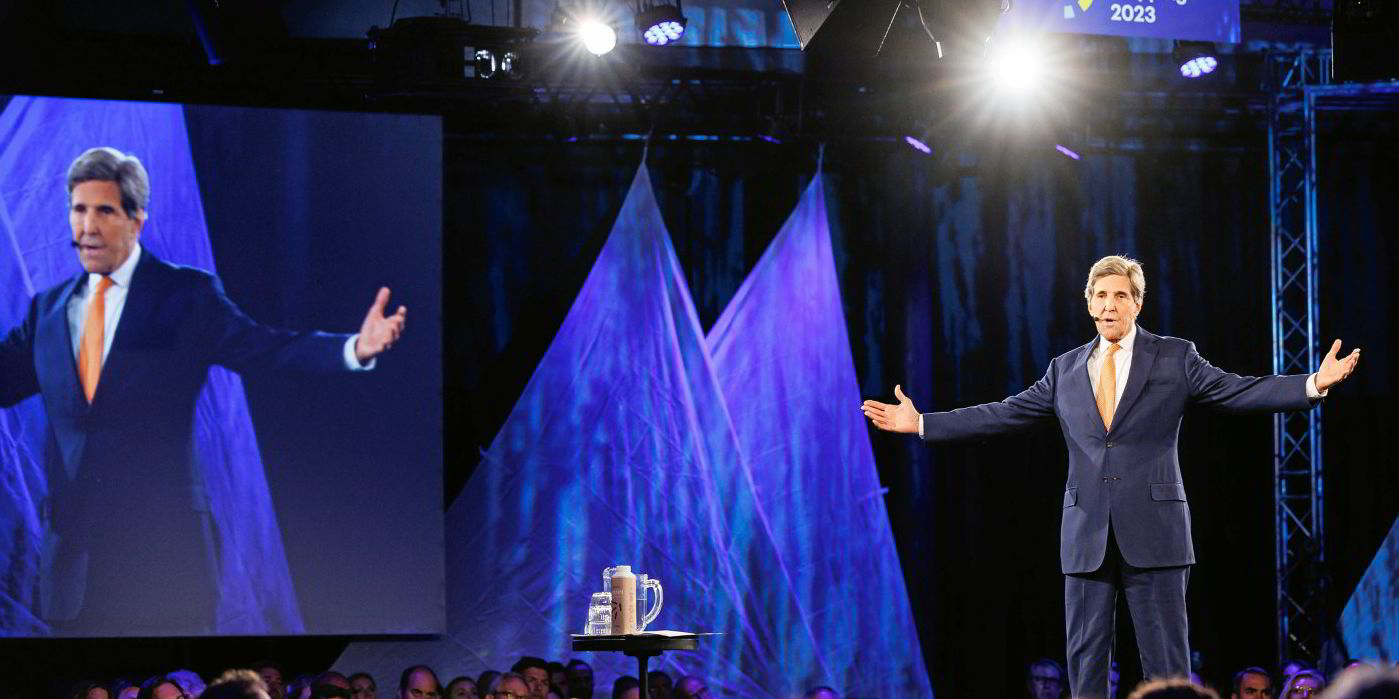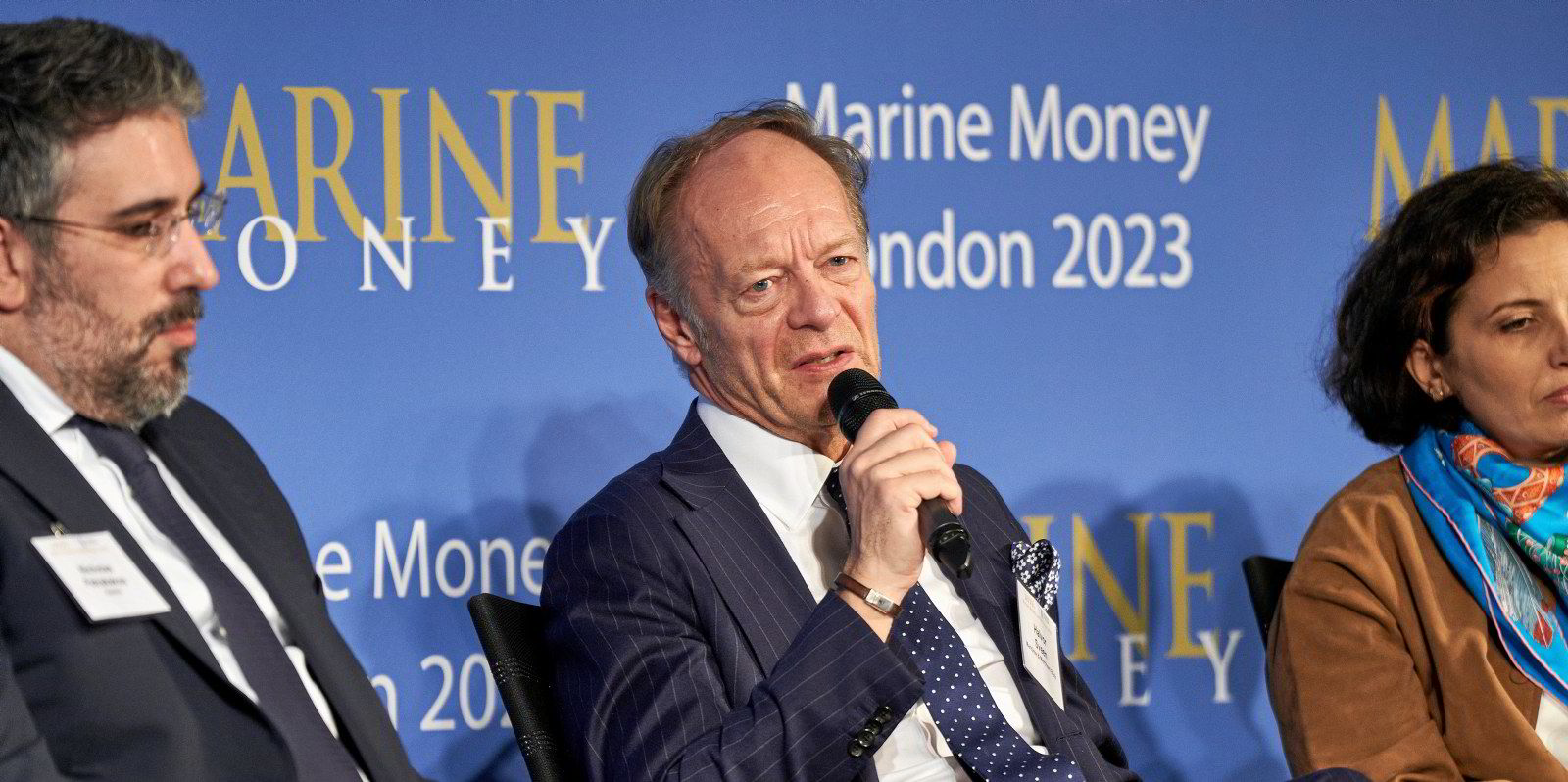Two of the most influential Greek shipowners have expressed their confidence in the outlook for the crude tanker market, and are backing it with newbuildings.
Sveinung Stohle, deputy chief executive of the Angelicoussis Group, and Capital Maritime & Trading founder Evangelos Marinakis told the TradeWinds Shipowners Forum at Nor-Shipping that under-investment in tankers in recent years makes the sector very attractive.
It backs up comments from Frontline chief executive Lars Barstad earlier in the week that John Fredriksen had “started smelling something” positive in the tanker market last year that drove his takeover interest in US-listed rivals Euronav and International Seaways.
Angelicoussis owns about 143 large bulk carriers, tankers and LNG carriers, and has been ordering LNG dual-fuel suezmaxes in the past year.
At an event earlier in Nor-Shipping, Stohle said the privately-held group had “big plans for further expansion”.
Asked to elaborate at the TradeWinds forum, he pointed to positive fundamentals in the tanker sector.
He highlighted the global fleet’s age profile, given a climate of underinvestment in the sector.
“We think that’s a very good opportunity to invest,” Sohle said.
He described Angelicoussis Group’s bullishness on LNG as a cargo and as a fuel for the long-term, not just as a transitional option.
“Very, very strong believers in the LNG market,” he said.
Marinakis controls around 100 ships on the water and about 55 newbuildings through his public and private companies.
Capital Maritime also recently ordered LNG dual-fuel suezmax tanker newbuildings at China’s New Times Shipbuilding.
Investment in new tankers is running at a 40-year low, with effectively zero fleet growth in the VLCC fleet in the next two years.
Shipowners have been hesitant to commit amid recent market volatility and uncertainty over future fuel choices and the risk of building stranded assets if international emissions rules change.
And with shipyards full with orders mainly for container ships and LNG carriers for the next three-and-a-half years there is little room for an upsurge in tanker newbuildings for at least four to five years.
Marinakis also expressed his concern at the impact of the rise of the shadow fleet serving the Russian oil trade, after the country was sanctioned by the West after its invasion of Ukraine last year.
Trafigura estimates around $11bn has been spent buying mainly elderly ships for the shadow fleet which now totals more than 700 tankers including 125 VLCCs, equivalent to about 15% of the big tanker fleet.
Many of the vessels appear to lack insurance and have poor safety records, with Singapore reporting more detentions this year than the whole of the last decade combined.
Eric Priante Martin contributed to this article.






